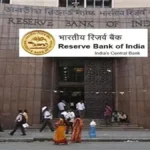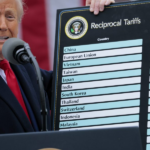Investors keeping a close eye on the Indian stock market should be aware of a recent development surrounding IndusInd Bank. Analysts have identified the bank as having a high short interest, meaning a significant number of investors are betting its stock price will decline. This situation presents a potential opportunity for savvy investors, but also carries inherent risks.

Understanding Short Interest:
Short selling involves borrowing shares of a company, selling them at the current price, and then repurchasing them later (ideally at a lower price) to return to the lender. Investors who engage in short selling essentially profit when the stock price goes down. A high short interest indicates that a large portion of the market expects the stock price to fall.
IndusInd Bank’s Short Squeeze Potential:
A short squeeze occurs when a stock price unexpectedly rises. This can happen due to positive news, strong financial performance, or simply increased buying pressure. When a stock price rises, short sellers are forced to buy back the shares they borrowed to avoid further losses, which can create a snowball effect, driving the price even higher.
In the case of IndusInd Bank, a potential short squeeze could occur if the bank’s share price goes up. This could be triggered by positive factors like strong quarterly results, favorable industry trends, or simply a shift in investor sentiment. Short sellers would then be forced to buy back shares at a higher price, potentially leading to significant losses.
Weighing the Risks and Rewards:
For investors considering IndusInd Bank, it’s crucial to weigh the potential risks and rewards:
Potential Rewards:
- Profiting from a Short Squeeze: If a short squeeze occurs, investors who buy IndusInd Bank stock at the current price could see substantial gains.
Potential Risks:
- Stock Price Decline: If the bank’s fundamentals are weak or negative news emerges, the stock price could decline, leading to losses for investors.
- Volatility: Stocks with high short interest can be highly volatile, meaning their prices can fluctuate rapidly, making them riskier investments.
Investing in IndusInd Bank: Not for the Faint of Heart
IndusInd Bank’s high short interest presents a potentially lucrative opportunity for experienced investors comfortable with a high degree of risk. However, it’s not a situation suitable for risk-averse investors.
Conducting Due Diligence is Key
Before making any investment decisions, it’s vital to conduct thorough research on IndusInd Bank. Consider the bank’s financial performance, future prospects, industry trends, and overall market sentiment. This comprehensive analysis will help you make an informed decision about whether IndusInd Bank aligns with your investment goals and risk tolerance.
Alternative Investment Strategies
Investors seeking exposure to the Indian banking sector but wary of the volatility associated with high short interest might consider other options. Investing in well-established banks with strong fundamentals or Exchange Traded Funds (ETFs) that track the broader banking sector could be less risky alternatives.
IndusInd Bank’s situation highlights the importance of understanding short interest and carefully evaluating the risks and rewards before investing in such stocks.









